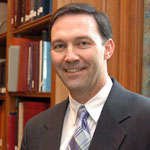Commentary on Psalm 123
Psalm 123 is the fourth psalm in the collection of psalms held together by the common designation “of Ascents” in their titles (Psalms 120-134).
These psalms were probably collected for use during pilgrimage to Jerusalem or to promote such pilgrimage. The term “ascents” comes from a Hebrew root meaning “to go up.” This word appears in the last line of the Chronicler’s history as part of the report that Cyrus of Persia, having conquered the Babylonians, would allow the exiled people of Judah to return to their homeland and to worship God in the soon-to-be-rebuilt temple in Jerusalem. The word to the exiles concerning anyone who would return to Jerusalem was, “Let him go up” (2 Chronicles 36:23). Thus, “ascents” in the title of Psalm 123 denotes ascent to Jerusalem and/or to the temple on Mount Zion.
The psalm has elements of the prayers for help known elsewhere in the Psalter (e.g. Psalm 13): complaint of trouble and petition for salvation (verses 3-4) and expression of trust (verses 1-2). These features most often appear in reverse order, with complaint and petition first, followed by a statement of trust, though the present order occurs in some other psalms such as Psalm 40. The two parts of Psalm 123 hold together well, with the statement of trust and confidence serving as the foundation for the complaint and petition. For example, references to mercy in verses 2 and 3 connect the two segments of the psalm. The petition for mercy in verse 3 is related to the recognition that it is God’s nature to give it.
The psalm opens with an individual speaking (“I lift up;” v. 1). In verse 2 the voice becomes plural (“our eyes look to the Lord”) and the community voice pervades the remainder of the psalm. This shift from first-person singular to first-person plural speech probably reflects the situation of worship in which an individual spoke on behalf of the worshippers gathered (see similarly-cast prayers in Psalms 129 and 131).
Psalm 123 begins with the declaration, “To you I lift my eyes” (Psalm 123:1), which is similar to the opening of Psalm 121 (“I lift up my eyes to the hills”) and may in fact be an adaptation of Psalm 121:1. “Lifting the eyes” is an expression of anxiety and helplessness.1 In Psalm 121 the psalmist lifts eyes to the hills in search of security and protection. The psalm suggests this is found in God’s presence as experienced in the Jerusalem temple. In Psalm 123:1, however, the eyes are not lifted to God’s dwelling place in the Jerusalem temple, but to God’s heavenly abode (“enthroned in heaven”). Though the psalm appears in a collection meant for pilgrimage to Jerusalem, it identifies God first and foremost as the one who dwells in the heavens. The worshippers who prayed this prayer lived in the period after the Babylonian exile. They had experienced the vulnerability of the temple in Jerusalem when they saw it destroyed and, as a result, they placed their trust in and conceived God primarily as the one who was enthroned in the temple that could not be destroyed by an enemy.
Verse 2 contains a double simile that expounds on the opening declaration. The worshipping community “lifts its eyes” as servants look to a master (v. 2a) or as female slaves look to their mistress (v. 2b). The images connote vulnerability, dependence, and obedience. As William Bellinger and Walter Brueggemann observe, this type of address is not politically correct, and it should not in any way suggest that servitude of one human to another is good or right. In a context in which such relationships were common, however, the simile makes sense. But even here the notion of the “master” is transformed. The psalmist who calls on the Lord as master knows no dread or fear, only mercy.2 This master is one exclusively sought out for salvation: “our eyes look to the Lord our God, until he has mercy on us” (v. 2).
The psalmist seeks mercy in the form of relief from the contempt and oppression of the enemy. The notion of being held in contempt by an enemy is a common theme in the Psalter. For example, the reference to being scorned by the proud suggests a situation akin to the psalmist’s description of enemies sarcastically asking “Where is your God?” in Psalm 42:3. The language here is particularly close to that in other passages that distinguish humankind as rich and poor, righteous and wicked. Those who are speaking scornfully are “at ease” (v. 4) and are identified thus as rich and wicked. Although the psalm does not identify the enemies further, this language appears in Amos 6 in reference to those who enjoy economic privilege and oppress the poor. Both Amos and the psalmist identify the poor as righteous (Amos 2:6; Psalm 34:4-10, 19-22). The division does not suggest that material wealth itself is a mark of wickedness or that lack of it is a sign of righteousness. Rather, the language is used this way to highlight the typical attitude of dependence and humility of the poor and the common lack thereof by the rich.
Bellinger and Brueggemann aptly describe Psalm 123 as “one of the loveliest prayers in all of Scripture, simple and direct, trusting and confident, spoken out of need and in much hope.”3 It captures as well as any psalm the essence of piety the Psalter identifies with the righteous, and it calls on God for mercy and grace so as to acknowledge the primary identity of the God in the Psalms and in the Old Testament (see Exodus 34:6).
Notes:
1 Frank-Lothar Hossfeld and Erich Zenger, Psalms 3: A Commentary on Psalms 101-150 (Hermeneia; translated by Linda M. Maloney; Minneapolis: Fortress Press, 2011), p. 349.
2 Psalms (New Cambridge Bible Commentary; New York: Cambridge University Press, 2014), 531.
3 Ibid.


July 5, 2015